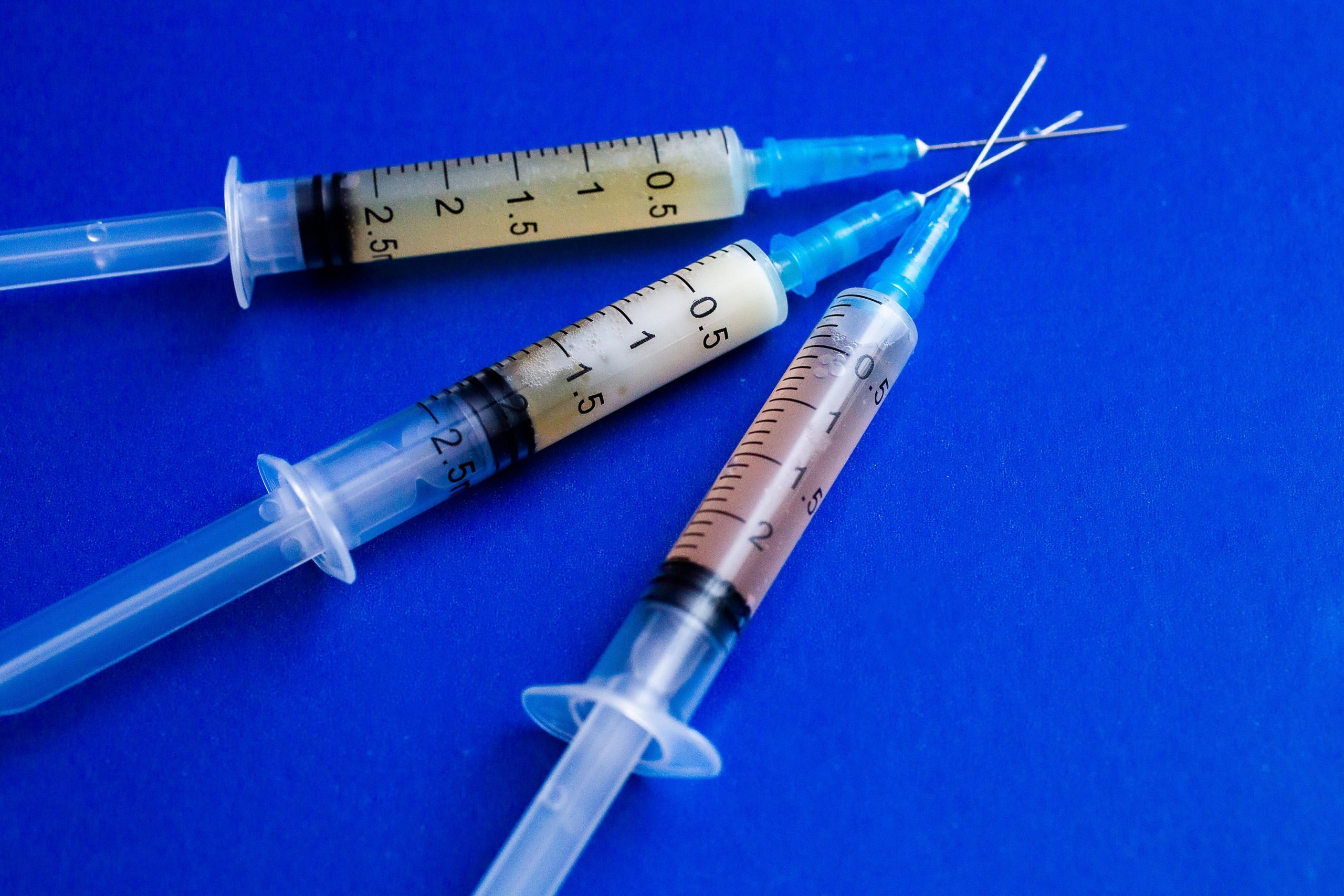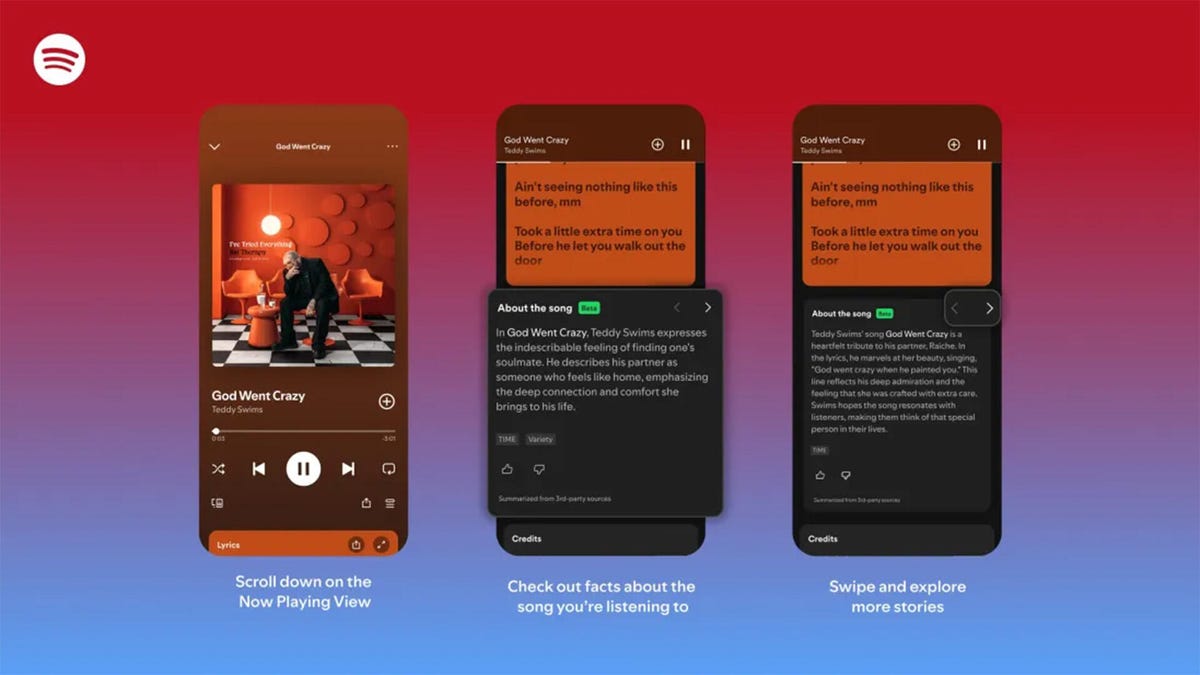Technologies
Breakthrough COVID cases among the fully vaccinated are real. Here’s the latest
A CDC report provides evidence that the delta variant is transmissible in vaccinated people who get infected. But that’s not a reason to question vaccines, experts say.

COVID-19 infections are surging throughout the US again (more than 95,000 new cases on Thursday) due to the highly contagious delta variant, with outbreaks particularly impacting areas with low vaccination rates. This week, a new study released by the US Centers for Disease Control and Prevention says the delta infection has similarly high viral loads in vaccinated and unvaccinated people. So what does that mean as more of these breakthrough cases are happening?
Currently, 164 million people in the US have been fully vaccinated, nearly half the country’s total population. The CDC’s research suggesting that vaccinated people infected with delta can also easily transmit the virus was the key factor motivating the new federal guidance that fully vaccinated individuals continue to wear masks indoors. At the same time, the CDC report underlines that the number of cases and deaths among fully vaccinated people is very small compared with the number among the unvaccinated.
Should you be concerned about getting COVID-19 if you’ve been inoculated? Since there’s more community spread and there are more breakthrough cases despite vaccination, new data suggests yes. We’ll explain what a breakthrough coronavirus infection is, how it’s possible for fully vaccinated people to become infected and what it all means. This information comes from the CDC, the World Health Organization and other experts.
What’s a breakthrough COVID-19 infection?
A breakthrough COVID-19 infection is when a fully vaccinated person becomes infected with the coronavirus without any symptoms, experiences symptoms, is hospitalized or dies from the infection. A small percentage of fully vaccinated people can get COVID-19 if exposed to the virus, but they’re much less likely to become sick, according to the CDC.
If someone’s fully vaccinated and does test positive for coronavirus, it’s likely they’ll have milder symptoms (see below) or be asymptomatic, Dr. Clare Rock, a Johns Hopkins medical professor, told me.
Now that it’s been found that fully vaccinated people can be infected with high viral amounts of the delta variant, the CDC is concerned they can transmit the virus. If you do become ill, experts urge you to isolate yourself to prevent others from getting sick, especially people with medical vulnerabilities.
How can fully vaccinated people become infected with coronavirus?
Someone can become infected with COVID-19 just before or right after they get the vaccination, because it takes roughly two weeks before the vaccine is most effective. However, even after the immunity builds up, there’s still a chance they can become infected, according to the WHO, since the vaccines aren’t silver bullets against disease (though they’re highly effective).
With millions of unvaccinated people around the world, new variants will emerge, Rock says. For example, the delta variant can pose a threat to people who are fully vaccinated — especially those who have high-risk medical conditions (see the next section).
Are COVID-19 symptoms still severe if you’ve been fully vaccinated?
Someone who’s fully vaccinated has a much smaller risk of experiencing severe symptoms from COVID-19. People who’ve received all their doses of a vaccine are less likely to be hospitalized or die than those who haven’t been vaccinated, the CDC says. Vaccinated people typically see symptoms like a runny nose, which they mistake for a sign of a common cold, Rock said.
But that’s not to say serious cases can’t happen. The CDC says some fully vaccinated people can still be hospitalized and die. This can include people who have medical conditions that make them immunocompromised, Rock said, including those with cancer and people who’ve had organ transplants — in general, people who are more vulnerable.
How can you stay protected from breakthrough infections?
If you’re fully vaccinated but worried about getting sick, you can take the following precautions.
- Wear a mask in public places.
- Practice social distancing.
- Keep your home well-ventilated by opening windows.
- Wash your hands.
- Get a COVID-19 test if you’re experiencing symptoms.
Will fully vaccinated people need booster shots in the future?
At this time, there’s not a clear answer. Though some people say a booster shot may be necessary down the line, the CDC and the Food and Drug Administration don’t agree with that, at least not yet. Scientists are continuing to study the immunity of fully vaccinated people to get a better idea of how well the vaccines protect them.
Moderna is currently researching if and when a booster shot may be necessary. For instance, vulnerable people who don’t have a robust immune system, such as those with serious medical conditions, may need an additional shot, Rock said.
Pfizer says it’s working on a booster shot for its COVID-19 vaccine (PDF) to enhance immunity for those who’ve already received both doses. The UK is also prepping for booster shots, with vaccine experts in Britain saying a booster shot may be needed before winter.
Which variants are the cause of the breakthrough infections?
The variant causing the most concern right now is the delta variant, which is now the dominant strain in the US and other countries. This variant has caused an increase in COVID-19 cases, which is also affecting people who are fully vaccinated.
In comparison with the alpha variant, researchers have found delta to be 60% more transmissible, and hospitalization risks are much higher in unvaccinated people.
In most instances, the cases are happening in areas with low vaccination rates. For instance, US states like Louisiana and Florida have low vaccination rates and their COVID-19 cases are surging again.
What are experts saying about the efficacy of vaccines against COVID-19?
The breakthrough infections don’t mean the vaccines aren’t powerful.
«The effectiveness against severe disease is still substantial,» Dr. Anthony Fauci said during a White House press briefing July 22. «Get vaccinated. It offers good protection against disease.»
For more information, here’s everything to know about the delta variant. Also, here are more details about a potential COVID-19 booster shot, and here’s info on the debate over whether fully vaccinated people should wear masks.
The information contained in this article is for educational and informational purposes only and is not intended as health or medical advice. Always consult a physician or other qualified health provider regarding any questions you may have about a medical condition or health objectives.
Technologies
Spotify Launches ‘About the Song’ Beta to Reveal Stories Behind the Music
The stories are told on swipeable cards as you listen to the song.

Did you know Chappell Roan drew inspiration for her hit song Pink Pony Club from The Pink Cadillac, the name of a hot-pink strip club in her Missouri hometown? Or that Fountains of Wayne’s song Stacy’s Mom was inspired by a confessed crush a friend had on the late co-founder Adam Schlesinger’s grandmother?
If you’re a fan of knowing juicy little tidbits about popular songs, you might find more trivia in About the Song, a new feature from streaming giant Spotify that’s kind of like the old VH1 show Pop-Up Video.
About the Song is available in the US, UK, New Zealand and Australia, initially for Spotify Premium members only. It’s only on certain songs, but it will likely keep rolling out to more music. Music facts are sourced from a variety of websites and summarized by AI, and appear below the song’s lyrics when you’re playing a particular song.
«Music fans know the feeling: A song stops you in your tracks, and you immediately want to know more. What inspired it, and what’s the meaning behind it? We believe that understanding the craft and context behind a song can deepen your connection to the music you love,» Spotify wrote in a blog post.
While this version of the feature is new, it’s not the first time Spotify has featured fun facts about the music it plays. The streaming giant partnered with Genius a decade ago for Behind the Lyrics, which included themed playlists with factoids and trivia about each song. Spotify kept this up for a few years before canceling due to multiple controversies, including Paramore’s Hayley Williams blasting Genius for using inaccurate and outdated information.
Spotify soon started testing its Storyline feature, which featured fun facts about songs in a limited capacity for some users, but was never released as a central feature.
About the Song is the latest in a long string of announcements from Spotify, including a Page Match feature that lets you seamlessly switch to an audiobook from a physical book, and an AI tool that creates playlists for you. Spotify also recently announced that it’ll start selling physical books.
How to use About the Song
If you’re a Spotify Premium user, the feature should be available the next time you listen to music on the app.
- Start listening to any supported song.
- Scroll down past the lyrics preview box to the About the Song box.
- Swipe left and right to see more facts about the song.
I tried this with a few tracks, and was pleased to learn that it doesn’t just work for the most recent hits. Spotify’s card for Metallica’s 1986 song Master of Puppets notes the song’s surge in popularity after its cameo in a 2022 episode of Stranger Things. The second card discusses the band’s album art for Master of Puppets and how it was conceptualized.
To see how far support for the feature really went, I looked up a few tracks from off the beaten path, like NoFX’s The Decline and Ice Nine Kills’ Thank God It’s Friday. Spotify supported every track I personally checked.
There does appear to be a limit to the depth of the fun facts, which makes sense since not every song has a complicated story. For those songs, Spotify defaults to trivia about the album that features the music or an AI summary of the lyrics and what they might mean.
Technologies
Today’s NYT Connections: Sports Edition Hints and Answers for Feb. 7, #502
Here are hints and the answers for the NYT Connections: Sports Edition puzzle for Feb. 7, No. 502.

Looking for the most recent regular Connections answers? Click here for today’s Connections hints, as well as our daily answers and hints for The New York Times Mini Crossword, Wordle and Strands puzzles.
Today’s Connections: Sports Edition features a fun batch of categories. The purple one requires you to find hidden words inside some of the grid words, but they’re not too obscure. If you’re struggling with today’s puzzle but still want to solve it, read on for hints and the answers.
Connections: Sports Edition is published by The Athletic, the subscription-based sports journalism site owned by The Times. It doesn’t appear in the NYT Games app, but it does in The Athletic’s own app. Or you can play it for free online.
Read more: NYT Connections: Sports Edition Puzzle Comes Out of Beta
Hints for today’s Connections: Sports Edition groups
Here are four hints for the groupings in today’s Connections: Sports Edition puzzle, ranked from the easiest yellow group to the tough (and sometimes bizarre) purple group.
Yellow group hint: Golden Gate.
Green group hint: It’s «Shotime!»
Blue group hint: Same first name.
Purple group hint: Tweak a team name.
Answers for today’s Connections: Sports Edition groups
Yellow group: Bay Area teams.
Green group: Associated with Shohei Ohtani.
Blue group: Coaching Mikes.
Purple group: MLB teams, with the last letter changed.
Read more: Wordle Cheat Sheet: Here Are the Most Popular Letters Used in English Words
What are today’s Connections: Sports Edition answers?
The yellow words in today’s Connections
The theme is Bay Area teams. The four answers are 49ers, Giants, Sharks and Valkyries.
The green words in today’s Connections
The theme is associated with Shohei Ohtani. The four answers are Decoy, Dodgers, Japan and two-way.
The blue words in today’s Connections
The theme is coaching Mikes. The four answers are Macdonald, McCarthy, Tomlin and Vrabel.
The purple words in today’s Connections
The theme is MLB teams, with the last letter changed. The four answers are Angelo (Angels), Cuba (Cubs), redo (Reds) and twine (Twins).
Technologies
Today’s NYT Mini Crossword Answers for Saturday, Feb. 7
Here are the answers for The New York Times Mini Crossword for Feb. 7

Looking for the most recent Mini Crossword answer? Click here for today’s Mini Crossword hints, as well as our daily answers and hints for The New York Times Wordle, Strands, Connections and Connections: Sports Edition puzzles.
Need some help with today’s Mini Crossword? It’s Saturday, so it’s a long one, and a few of the clues are tricky. Read on for all the answers. And if you could use some hints and guidance for daily solving, check out our Mini Crossword tips.
If you’re looking for today’s Wordle, Connections, Connections: Sports Edition and Strands answers, you can visit CNET’s NYT puzzle hints page.
Read more: Tips and Tricks for Solving The New York Times Mini Crossword
Let’s get to those Mini Crossword clues and answers.
Mini across clues and answers
1A clue: Lock lips
Answer: KISS
5A clue: Italian author of «Inferno,» «Purgatorio» and «Paradiso»
Answer: DANTE
6A clue: Cerebral ___ (part of the brain)
Answer: CORTEX
7A clue: Leave home with a stuffed pillowcase as luggage, perhaps
Answer: RUNAWAY
8A clue: No more for me, thanks»
Answer: IMGOOD
9A clue: Fancy fabrics
Answer: SILKS
10A clue: Leg joint
Answer: KNEE
Mini down clues and answers
1D clue: Bars sung in a bar
Answer: KARAOKE
2D clue: How the animals boarded Noah’s Ark
Answer: INTWOS
3D clue: Stand in good ___
Answer: STEAD
4D clue: Smokin’ hot
Answer: SEXY
5D clue: Computer attachment
Answer: DONGLE
6D clue: Yotam Ottolenghi called it «the one spice I could never give up»
Answer: CUMIN
7D clue: Hazard
Answer: RISK
-

 Technologies3 года ago
Technologies3 года agoTech Companies Need to Be Held Accountable for Security, Experts Say
-

 Technologies3 года ago
Technologies3 года agoBest Handheld Game Console in 2023
-

 Technologies3 года ago
Technologies3 года agoTighten Up Your VR Game With the Best Head Straps for Quest 2
-

 Technologies4 года ago
Technologies4 года agoBlack Friday 2021: The best deals on TVs, headphones, kitchenware, and more
-

 Technologies5 лет ago
Technologies5 лет agoGoogle to require vaccinations as Silicon Valley rethinks return-to-office policies
-

 Technologies5 лет ago
Technologies5 лет agoVerum, Wickr and Threema: next generation secured messengers
-

 Technologies4 года ago
Technologies4 года agoOlivia Harlan Dekker for Verum Messenger
-

 Technologies4 года ago
Technologies4 года agoiPhone 13 event: How to watch Apple’s big announcement tomorrow
